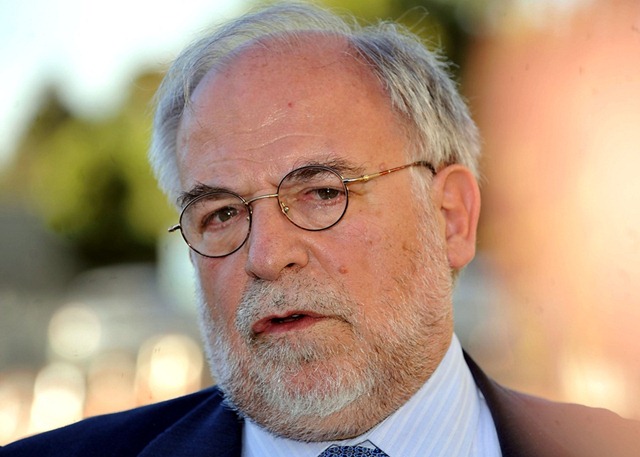
Interview with Dilma Rousseff’s special Foreign Affairs adviser Marco Aurélio García
BRASILIA — While the main opposition candidates look to reduce Brazil’s role in the Mercosur, wit in Dilma Rousseff’s government there is talk of strengthening it by moving from a problematic trade phase to a new large-scale industrial complementation phase.
This is what the president’s special Foreign Affairs Adviser and Brazil’s main representative in the Mercosur and South America Marco Aurélio García told Ámbito Financiero.
To make this possible Rousseff must win re-election, a likely outcome judging by the latest polls but something which cannot yet be taken for granted. The following is the main parts of the interview carried out in the government’s headquarters in the Planallto Palace.
All the government members are confident of a victory and some have even gone as far as to say that that it can be achieved in the first round on Sunday. Are you among those who think that?
I am very cautious because one of the characteristics of this election, unlike previous ones, is a certain level of unpredictability.
The electoral scene on August 12 (before the death of PSB candidate Eduardo Campos, replaced by Marina Silva) was different from the one on August 13 and it kept changing since then. Support for the president is growing so maybe if the election were a week later she would be able to win the first round. I am just going to say that she will win.
Let’s suppose Rousseff wins a second term then. Brazil needs to make changes to revive its economy and there is a lot of pressure on the government to modify its ties with Argentina and Mercosur. It has been criticized for having too much patience with my country’s foreign exchange and trade restrictions. Will it be possible to remain patient?
I don’t think we should talk about “patience” because that word has a somewhat subjective connotation. We have been monitoring the economic situation in Argentina because we too have our own problems. In that sense, I think the Brazilian government’s strategy to address these exogenous factors is the right one, because we cannot follow in the footsteps of European economies where workers’ wages and employment has been sacrificed.
In my view, there will be changes in Brazil’s macroeconomic management, but I think they will be moderate ones. We are not going to make wholesale changes because that would mean wasting twelve years of very significant social progress. There will be a new economic team, which is something that the president has already said, and we must obviously keep a very close eye on the international situation as it is still very unclear. In that sense, it is of great importance to maintain a frank discussion within the Mercosur that takes into account the problems of each country.
What will that restructuring be like?
Nothing like the theories that are being thrown around about a flexible Mercosur, because besides being false, they are innocuous, as I don’t think we can at this moment make any bilateral trade agreement outside the Mercosur. Unless, of course, we give up a lot of our sovereign prerogatives, which neither Argentina, Brazil nor other countries are able to do. Regarding the negotiations with the European Union, the bloc already has a proposal.
Part of the Brazilian business sector and political opposition insist that Argentina is hindering the negotiations
No, that’s not true, it’s a lie. It’s quite the opposite. We have done a lot of work in the Mercosur to reach the proposal stage. You know what Angela Merkel said to us right here the day before the German team’s debut in the World Cup? She said: “We don’t have a proposal as it is very difficult for the 28 countries to come to an agreement.” Now, if there are to be offers we have to exchange them at the same time, because we can’t hand ours over for them to analyze and wait for them to tell us what they agree with and what not. The system should be: I give you my proposal and I receive yours, and that’s where the discussion begins.
Let’s return to the question of rethinking the Mercosur. On what grounds would this be?
In my personal opinion, we would have to make an in-depth list of all the difficulties we have. Some, like bilateral ones, we have already discussed. But there are other ones like how we are going to pursue the substitution of regional imports process. Argentina has raised this question a lot, especially in the auto parts sector
Could the transition period in Argentina be an obstacle for the bloc’s revival? Next year there will be elections and a decision on the hedge funds is still pending. And when the new government takes over, my country will most probably need another year to, let’s say, balance things up.
That is what is happening in the whole region. We are also in transition. Our challenge is to increase the low rates of growth we have at the moment, although the paradox is that unemployment is also low. The challenge for the region is to return to high levels of growth.
